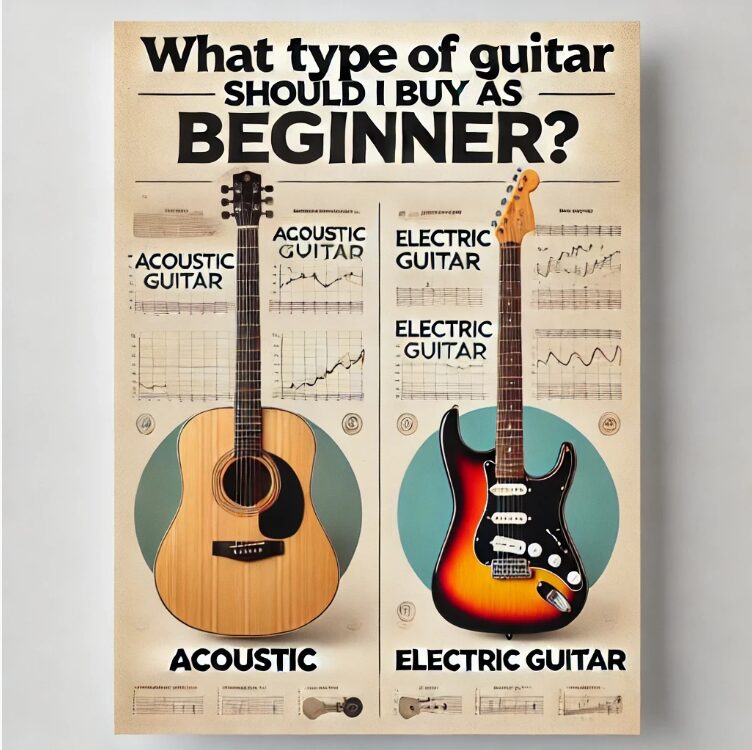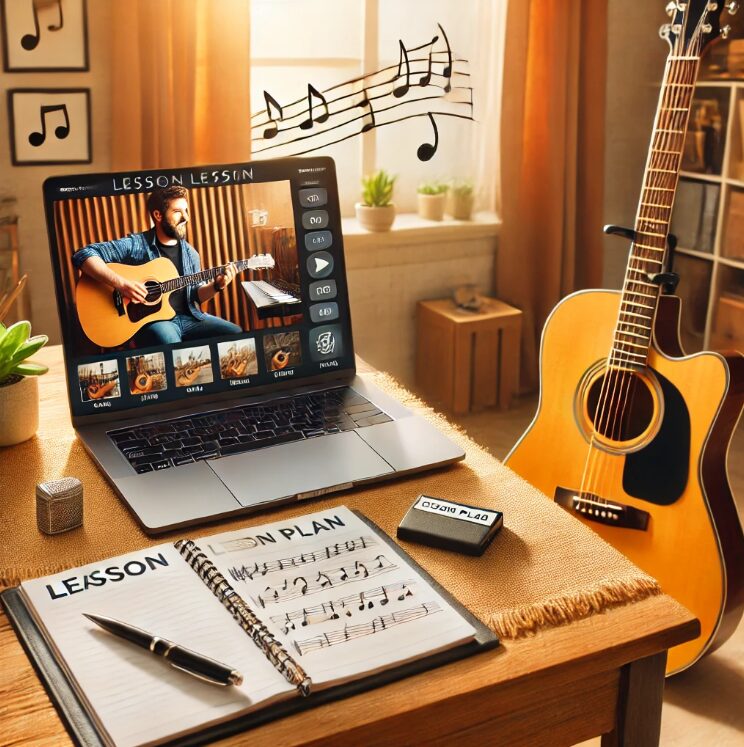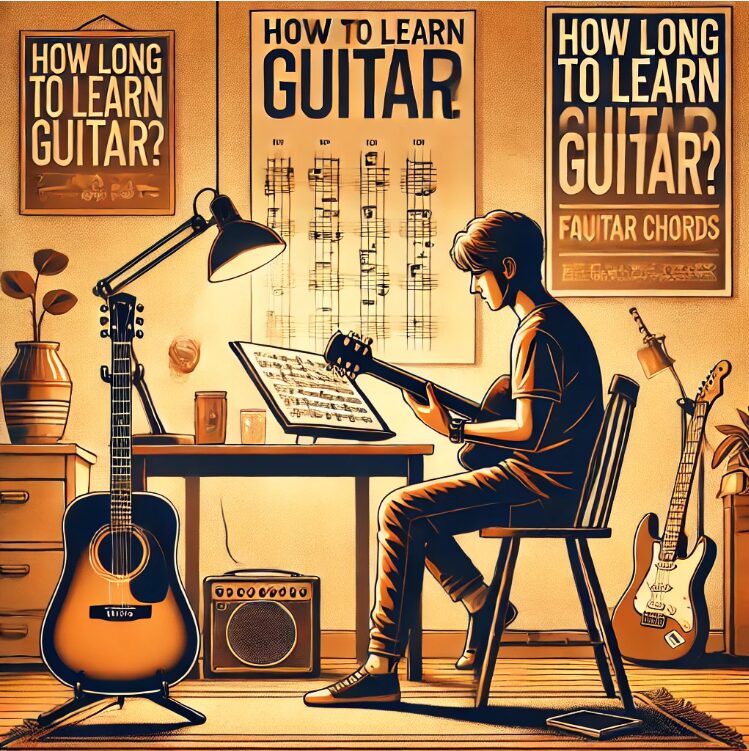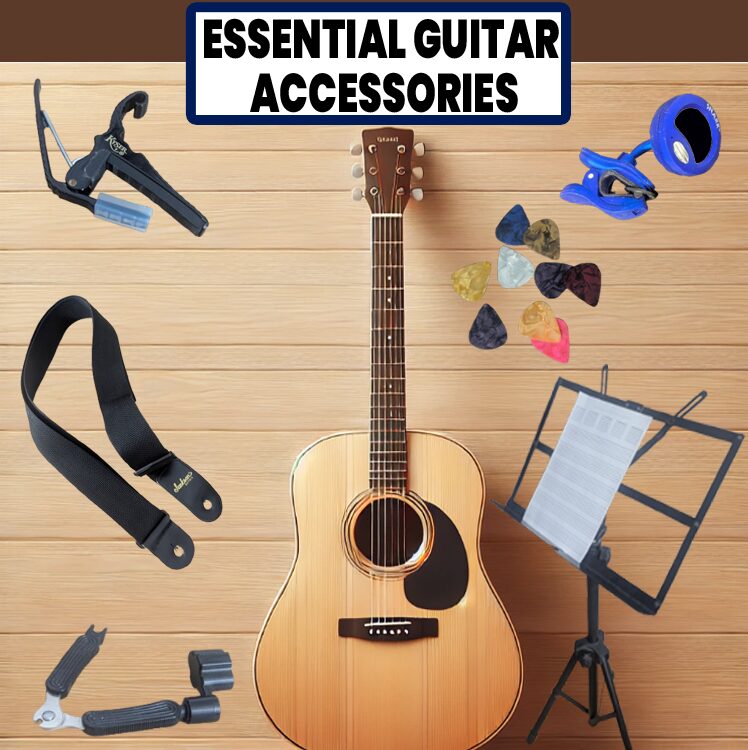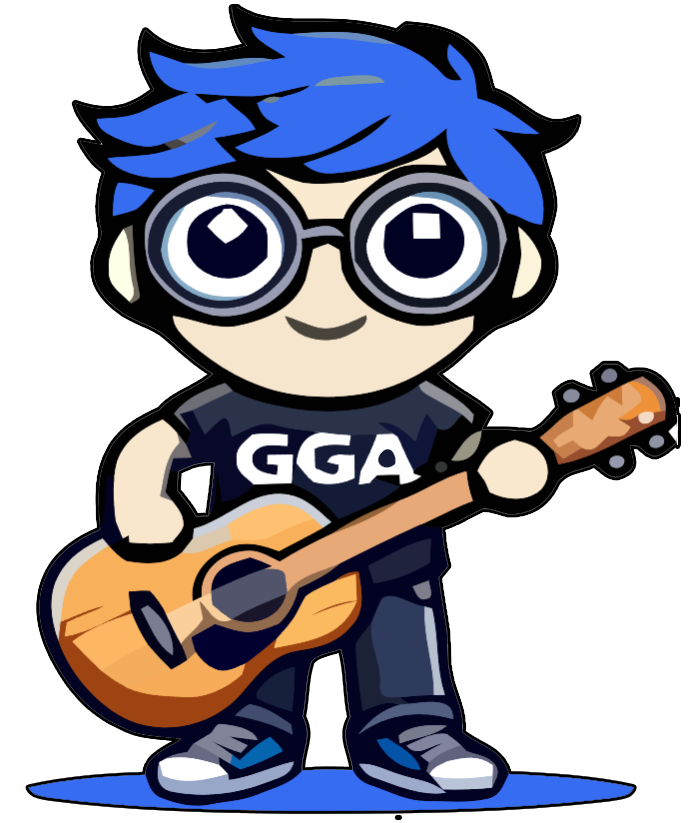Please login to bookmark
Choosing your first guitar is exciting but can also feel overwhelming with so many options available. Keywords like “Choosing your first guitar” and “Best guitar for beginners” often come to mind when starting this journey. Whether you’re dreaming of playing your favorite songs, performing on stage, or just jamming at home, the right guitar can set you up for success. Let’s break it down step by step so you can confidently pick the best guitar for your journey.
As an Amazon Associate, I earn from qualifying purchases. Your support helps keep Guitar Geek Academy running at no extra cost to you!
Step 1: Acoustic vs. Electric Guitar – Which One Is Right for You?
The first big decision is whether to go with an acoustic or an electric guitar. When searching for the “Best guitar for beginners,” understanding the differences between these two types is essential.
Each type has its own advantages and challenges, and your choice will depend on the music you want to play and your personal preferences.
Acoustic Guitar: Pros & Cons
- Pros:
- Simple setup: Just pick it up and play, no amp or cables required.
- Perfect for playing folk, country, pop, and singer-songwriter styles.
- Builds finger strength faster due to heavier strings.
- Ideal for campfire singalongs and unplugged sessions.
- Cons:
- Larger body can be uncomfortable for smaller players.
- Strings are harder to press down, which can be challenging for beginners.
Tip: A guitar with nylon strings, often classified as a classical guitar, can be easier on the fingers for beginners due to the softer string material.
Check out beginner-friendly acoustic and classical guitars on Amazon.
Electric Guitar: Pros & Cons
- Pros:
- Lighter strings and lower action (distance between strings and fretboard) make it easier to press notes.
- Compact body is more comfortable for younger players or those with smaller hands.
- Ideal for rock, blues, jazz, and modern styles.
- Versatile sound options with the use of effects and amp settings.
- Cons:
- Requires extra equipment like an amp, cables, and sometimes a pedal.
- Can be noisier depending on the amp and settings.
Explore beginner electric guitar bundles with amps on Amazon.
Key Takeaway: If you love the idea of singing along to acoustic ballads or playing unplugged, start with an acoustic guitar. If you’re into rock, blues, or jazz and want more sound variety, go electric.
Step 2: Budgeting for Your First Guitar
As a beginner, it’s important to balance affordability and quality. A poorly made guitar can make learning frustrating, while an expensive guitar might not be necessary for your first steps.
How Much Should You Spend?
- $150–$300: Great for reliable beginner guitars that are easy to play and sound good.
- Under $100: Avoid ultra-cheap guitars, as they often have tuning issues and poor build quality.
- $300+: If your budget allows, consider this range for higher-quality instruments that you can grow into.
Additional Costs to Consider
- For electric guitars, factor in an amp (starting around $50) and cables.
- Accessories like picks, tuners, guitar straps, and extra strings add around $20–50.
Step 3: Recommended Guitars for Beginners
Here are some general guidelines to help you choose a beginner-friendly guitar:
Best Beginner Acoustic Guitars
- Look for a well-built acoustic guitar with a comfortable body size and easy-to-play strings.
- Many beginner acoustics come with a warm tone and sturdy construction that can handle daily practice.
Best Beginner Electric Guitars
- Choose an electric guitar with a lightweight body and smooth neck for easy playability.
- Starter models often come with versatile sound options suitable for multiple genres.
Tip: Visit a music store and try out a few guitars to see which one feels most comfortable to you. The best choice is the guitar that inspires you to practice.
Step 4: Should You Buy New or Used?
Buying second-hand can save money, but it’s important to inspect the guitar carefully to avoid potential issues. Here’s what to check:
- Straight Neck: Ensure the neck isn’t warped or twisted.
- Playable Strings: Press each string to check for buzzing or dead notes.
- Functional Hardware: Test the tuning pegs and knobs (if electric).
Tip: If possible, bring a guitarist friend or teacher to help evaluate a used guitar before buying.
Step 5: Choosing the Right Size
If you have small hands, short arms, or are buying for a child, consider a smaller guitar. Many brands offer 3/4-size models that are easier to handle without sacrificing sound quality.
Recommended Small Guitars
- Acoustic: Consider a smaller-bodied acoustic guitar for easier playability.
- Electric: Look for a compact electric guitar designed for beginners or younger players.
Step 6: Essential Accessories for Beginners
No matter which guitar you choose, a few key accessories will make your learning experience smoother:
- Clip-On Tuner: Keeps your guitar in tune with ease.
- Guitar Picks: Start with medium thickness for versatility.
- Guitar Strap: Especially important for standing practice.
- Extra Strings: Strings can break, so have spares handy.
- Capo: Lets you play songs in different keys easily.
Step 7: Acoustic-Electric Guitars – The Best of Both Worlds?
An acoustic-electric guitar combines the simplicity of an acoustic with the option to plug into an amp for amplified sound. These are great if you want versatility but aren’t sure which route to take.
Find essential accessories like tuners, picks, and capos on Amazon.
Recommended models:
- Look for guitars that offer a balance of acoustic tone and easy amplification for performances.
Conclusion: The Best Guitar Is the One You’ll Play
Ultimately, the best beginner guitar is the one that feels comfortable and inspires you to practice. Start with a reliable model, set realistic goals, and enjoy the process of learning. Remember, even the most famous guitarists started with a first guitar just like you!


